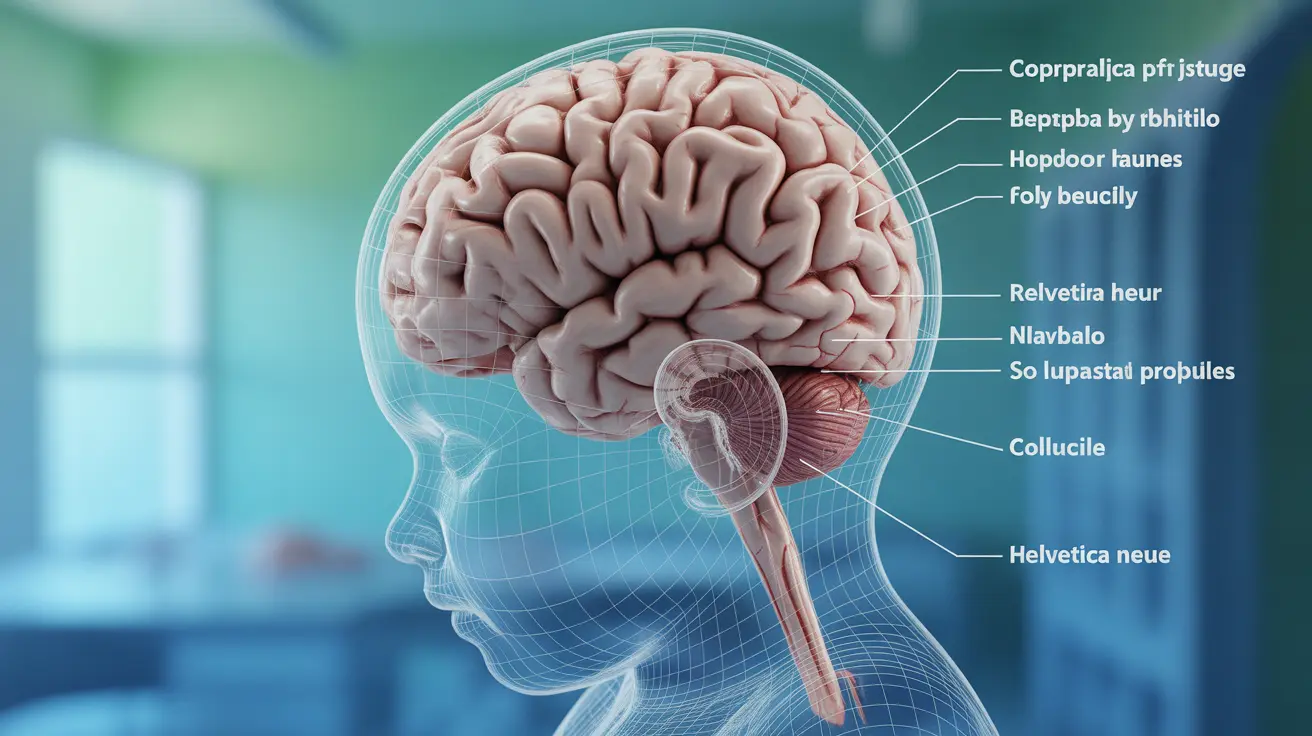Colpocephaly is a rare neurological condition that affects the development of a baby's brain, specifically involving the enlargement of the posterior (occipital) horns of the lateral ventricles. Understanding this condition is crucial for parents and caregivers to ensure early detection and appropriate medical intervention for affected infants.
This comprehensive guide explores the key aspects of colpocephaly in babies, including its symptoms, causes, diagnosis, and available treatment options. Early recognition and intervention can significantly impact the quality of life for affected children.
Understanding Colpocephaly and Its Impact on Brain Development
Colpocephaly occurs during fetal brain development when the lateral ventricles, fluid-filled spaces in the brain, become disproportionately enlarged in their posterior regions. This structural abnormality can affect various aspects of a child's development and neurological function.
The condition is typically present at birth and may be associated with other developmental issues affecting the brain and nervous system. Understanding its implications is essential for proper medical management and support.
Common Signs and Symptoms
Babies with colpocephaly may exhibit various symptoms, which can range from mild to severe:
- Delayed motor development
- Muscle spasticity or weakness
- Poor head control
- Feeding difficulties
- Vision problems
- Seizures
- Developmental delays
The severity and combination of symptoms can vary significantly among affected infants, making each case unique and requiring individualized medical attention.
Causes and Risk Factors
Several factors can contribute to the development of colpocephaly during pregnancy:
- Genetic mutations
- Infections during pregnancy
- Reduced blood flow to the developing brain
- Exposure to certain medications or toxins
- Complications during pregnancy or delivery
Understanding these risk factors can help healthcare providers monitor pregnancies more closely when necessary and implement appropriate preventive measures when possible.
Diagnosis Methods
Prenatal Detection
Colpocephaly can often be detected during pregnancy through:
- Routine prenatal ultrasound
- Fetal MRI scanning
- Detailed anatomical surveys
Postnatal Diagnosis
After birth, diagnosis may involve:
- Physical examination
- Neurological assessment
- Brain imaging studies (MRI, CT scan)
- Developmental evaluations
Treatment and Management Approaches
While there is no cure for colpocephaly, various treatment options can help manage symptoms and support development:
Medical Management
- Anti-seizure medications when necessary
- Physical therapy
- Occupational therapy
- Speech therapy
- Vision therapy when needed
Support Services
Comprehensive support services may include:
- Early intervention programs
- Special education services
- Family counseling and support
- Regular medical monitoring
Frequently Asked Questions
What are the common symptoms of colpocephaly in babies? Common symptoms include developmental delays, muscle weakness or spasticity, seizures, vision problems, and difficulties with movement and coordination.
What causes colpocephaly and how is it related to pregnancy complications? Colpocephaly can be caused by genetic factors, infections during pregnancy, reduced blood flow to the developing brain, or other pregnancy complications that affect brain development.
How is colpocephaly diagnosed in newborns and can it be detected before birth? Colpocephaly can be detected before birth through prenatal ultrasound and MRI scans. After birth, diagnosis is confirmed through brain imaging studies and comprehensive neurological examinations.
What treatment and management options are available for babies with colpocephaly? Treatment options include medical management of symptoms, physical therapy, occupational therapy, speech therapy, and early intervention programs to support development.
Can colpocephaly cause developmental delays and seizures in infants? Yes, colpocephaly can cause developmental delays and seizures in infants. The severity and specific manifestations vary among affected children, requiring individualized treatment approaches.
With proper medical care and support, many children with colpocephaly can make significant developmental progress. Early intervention and consistent therapeutic support are key factors in optimizing outcomes for affected children.




